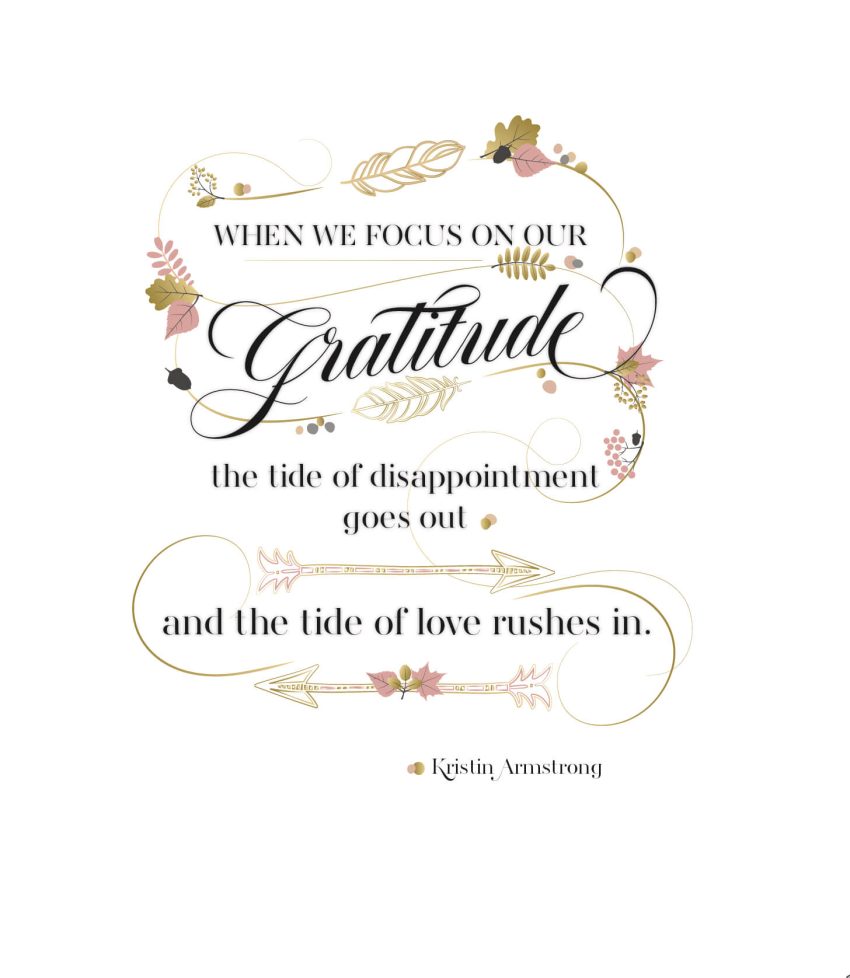Wouldn’t it be wonderful if you could improve your sleep, reduce stress, increase your energy levels, lower blood pressure and reduce pain without visiting the doctor, taking medicine or spending money? Turns out you can, and it’s easier than you might think.
All it takes is a bit of gratitude, that elusive emotion that, by allowing us to pause and appreciate what—and who—we have in our lives, can disrupt the negative thoughts that tend to creep into our brains. “The upcoming holidays are a great time to enhance your day-to-day life through gratitude,” says Sara Schairer, founder and executive director of COMPASSION IT, a nonprofit that inspires compassionate acts. “Research indicates that gratitude practices boost emotional well-being as well as physical health.” And that’s just the beginning. Cultivating gratitude can also enhance your relationships: as you focus your thoughts on the positive things happening around you, you’ll have less time and energy to devote to negative thoughts. The result? You’ll find it easier to tap into feelings like sympathy, empathy and compassion. Even better, the more you practice gratitude, the easier it gets. At the Mayo Clinic in Rochester, Minnesota, practitioners share research with patients showing that cultivating gratitude can foment changes in the brain that allow it to more effectively ward off health saboteurs like depression, anxiety and insomnia.
The key to realizing these benefits is to make the time—every day—to take a moment for gratitude. If you like a routine, make it part of yours, perhaps walking your mind through five things or people you’re thankful for before you get out of bed in the morning. Spontaneous types might prefer to carry a small notebook to jot down a positive thought or image the moment it occurs. Don’t beat yourself up if you find your mind wandering to gloomy memories. Instead, try to turn it around by figuring out one thing you might have learned from that situation.
Once you’ve gotten comfortable seeking out moments of inspiration, share your gratitude with others. “You can start small, say by texting a ‘thank you for making my life brighter’ message to a friend or writing a kind review on Yelp or Amazon,” says Schairer. “Setting a daily reminder on your phone will help you remember.”
As you become more adept at pushing aside negativity and replacing it with positive, grateful thoughts, don’t be surprised if, besides feeling better, you discover feel-good emotions, like compassion and joy, making more regular appearances in your life.


